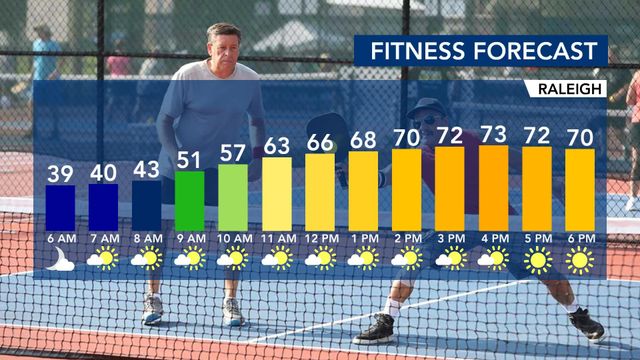Health, home care workers are heroes during COVID-19 times

This article was written for our sponsor, Action Health Staffing.
As hospitals across the country deal with a massive influx of patients due to the spread of COVID-19, the limits of their capacity have been tested. For patients in need of continuous or immediate care, not only can higher wait times dissuade a visit, but there's also a risk of infections and germs within the facility.
As families search for safe ways to care for their loved ones, in-home care has quickly become a more attractive option. For those who work for home care agencies like Action Health Staffing, they've taken the increased responsibility in stride.
"We have a wonderful group of caregivers and nurses who know the risk and still don the equipment and head out the door. We equip them with all the knowledge we have to get on the frontline and take care of our patients," said Sheri Harper, a registered nurse and Vice President of Nursing at Action Health Staffing. "They give their all to their job — they are willing to help out in so many areas. Our aides are constantly working to make sure those clients' needs are met."
Although hospitals are normally an option, many individuals are either immunocompromised and don't want to risk exposure or need continuous or immediate attention some hospitals don't have the capacity for. COVID-19 has led to a shortage in home care workers, due to both the spread of the virus in homes and increased caution on the side of patients and workers.
However, the staff at companies like Action Health continue to step in, in whatever ways their clients need. Across Eastern North Carolina, medical staff and care workers provide services including 24-hour home care, short-term and long-term care for patients recovering from injuries or suffering from chronic illnesses, and transitional services for clients moving from the hospital to home.
In whatever capacity they're serving, home care workers have been carefully trained to adhere to the latest safety standards.
"We talk to our care workers at least once or twice a week, whether they be physically working in our building or over the phone, encouraging them to make sure that they're using all the safety precautions. When in a home, they're continuously washing their hands, disinfecting and cleaning, and sanitizing surfaces and surface barriers that themselves and the client will be using," said Tracy Taylor, the corporate support specialist at Action Health Staffing. "We're constantly monitoring them and handing out literature and posting material in our offices to review. When the nurses go out and do their home visits, they're also continuously reviewing the latest precautions they should be taking."
In working with a home care worker, not only are clients able to limit their exposure and contact to others, but so are the workers themselves. In focusing on just a handful of clients at a time, workers are able to build long-term relationships with each client, familiarizing themselves with health issues and individual needs.
"Through home care, clients are able to stay safe, stay in their home and get the amount of care that's individually needed. Not having to go out limits that exposure, and we individualize the care plans to meet the needs and the timeframes needed," said Harper. "Our caregivers have a great deal of education, so they know what to report and what to look for. It's very much a mindset of 'We're all in this together, and we're all doing it for the good of the client.'"
As COVID-19 continues to change the face of health care and home care, the care workers and leadership at home care agencies like Action Health are continuing to adhere to the latest safety standards, reviewing recommendations, training on new procedures, and keeping the health and safety of clients at the forefront of their minds.
In doing so, home caregivers are able to provide clients with quality, cost-effective care that minimizes the risk associated with health care facilities.
"The system evolves and we are staying on top of current CDC guidelines, which, as you know, change periodically and sometimes frequently," said Harper. "We are constantly updating and monitoring those guidelines and re-educating, and whatever the current status is, we're trying to exceed what we are told to do."
This article was written for our sponsor, Action Health Staffing.











